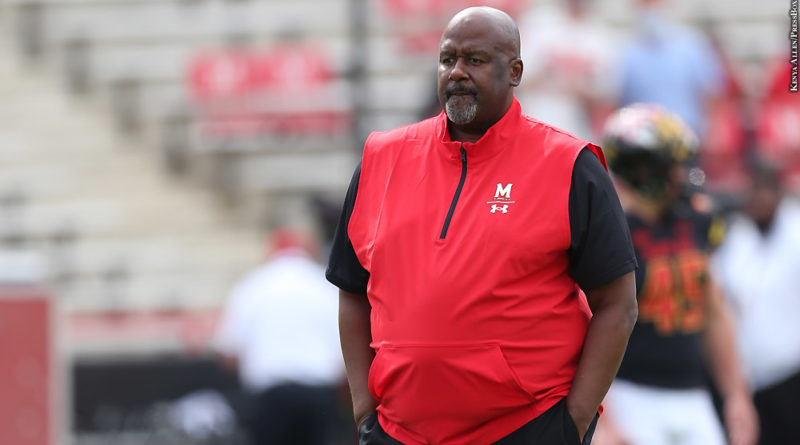When Maryland football and Iowa face off Oct. 1, the game will have meaning beyond the field at Maryland Stadium.
Friday night’s matchup is a Mental Health Awareness Game, which have become common in college athletics in recent years. The Terps are partnering with Rachel Baribeau, the founder of I’m Changing the Narrative. The organization focuses on promoting positive mental health, and Baribeau has extensive experience traveling around the country speaking with student-athletes.
Locksley first met Baribeau when he was the offensive coordinator at Alabama and she came to speak with the Crimson Tide football team.
“The more people that talk about mental health, the more people that bring it up in conversations and normalize it and make it an everyday thing, the less people struggle alone,” Baribeau said. “The less people get isolated and the less people get by themselves and get in dangerous places.”
During the game, Maryland players will wear green ribbon stickers on the back of their helmets, a symbol for mental health awareness. A public service announcement focused on destigmatizing mental health will also be shown on the video board during the game. The joint PSA released on social media features important thoughts from several players and coaches on both teams.
Mental health is a cause near and dear to Locksley’s heart. His son, Meiko, battled mental health difficulties before his death. Meiko was shot and killed in Columbia, Md., in 2017 at the age of 25. Locksley has consistently preached the idea of openness and discussing mental health with his players. That message is increasingly important in football with the sport’s physical and tough nature.
“For me after losing Meiko and going through the struggles of what mental health brings about, I made a promise to myself that from the tragedy of losing him that I would use my platform to ensure that any player I recruited I created a safe haven for them to feel like anytime something’s going on, open-door policy,” Locksley said. “I look for it to where they don’t even have to ask. I know some people say, ‘He’s a players’ coach.’ I’m a firm believer you can never be too close to your own children, so I embrace players’ coach.”
The importance of discussing mental health has resonated with the players, including junior punter Anthony Pecorella. Pecorella is an outspoken advocate for talking about mental health after publicly sharing his own struggles.
Along with Maryland cheerleader Charley Baker, Pecorella created an Instagram account that shares inspirational quotes and aims to reduce the stigma surrounding mental health.
“I started the page in January 2021, it was a couple weeks after I released my struggles with mental health,” Pecorella said. “When we came up with the idea for the Instagram it was kind of a spontaneous thing and got a great response on the first day. The response has been great and a lot of people have opened up about their own struggle, which is why we started it.”
Beyond creating an open conversation about mental health within the Maryland football program, both Baribeau and Locksley are hopeful this message expands beyond the scope of athletics to become campus-wide.
As a part of the larger mental health initiative, I’m Changing the Narrative brought a blue recliner chair to several different athletic events throughout the week. The chair symbolizes a place where people can go and feel more comfortable talking about their mental health.
Essentially, people can feel a sense of security removing the figurative mask that has prevented them from discussing their mental health. Baribeau is hopeful that the symbolism this chair provides will extend beyond athletic events. She’s optimistic it will encourage people to discuss mental health within their own home and communities.
“Beyond the game, beyond the ribbons and everything else we’re doing, we are starting conversations around mental health,” Baribeau said.
Photo Credit: Kenya Allen/PressBox

